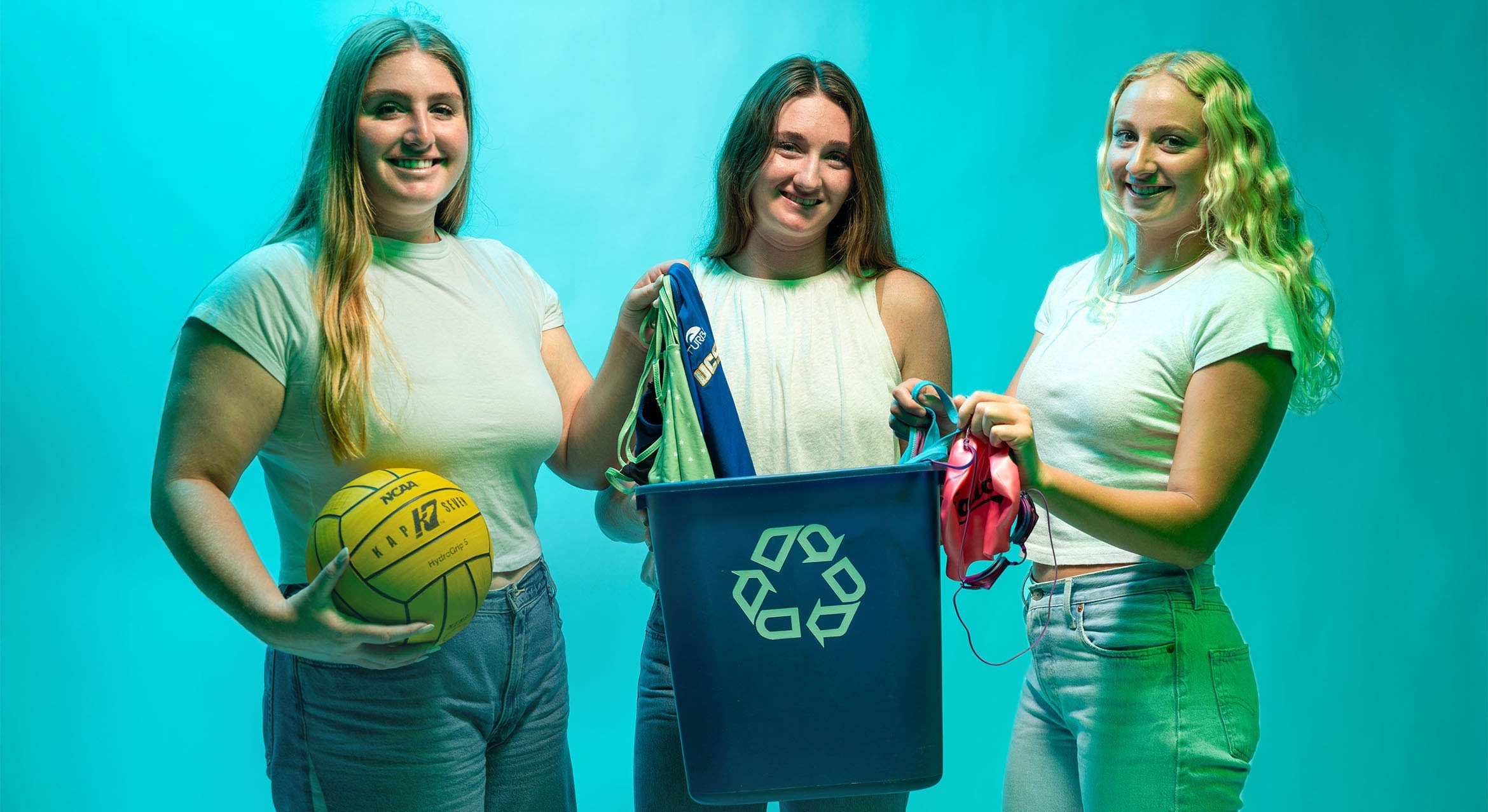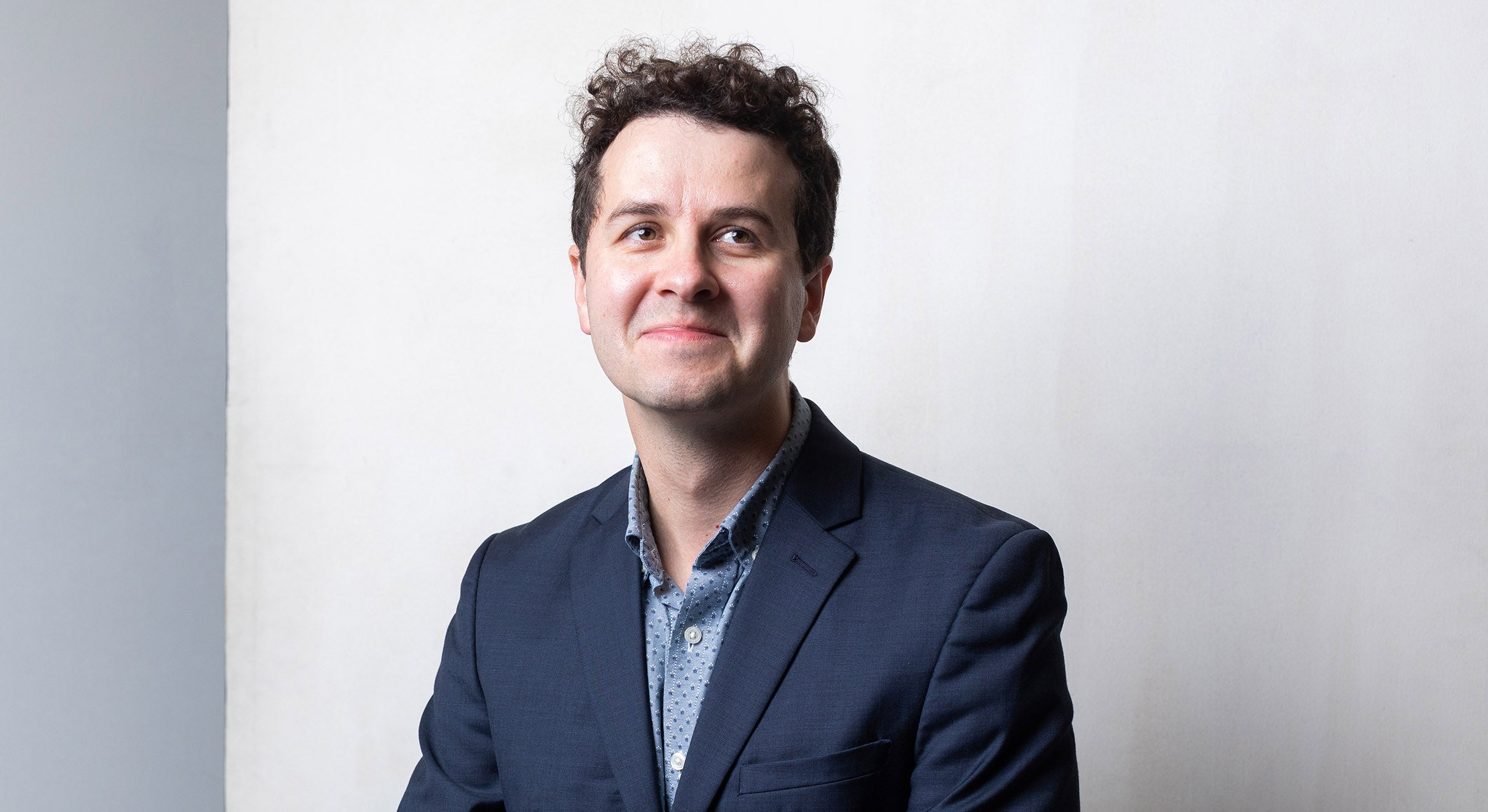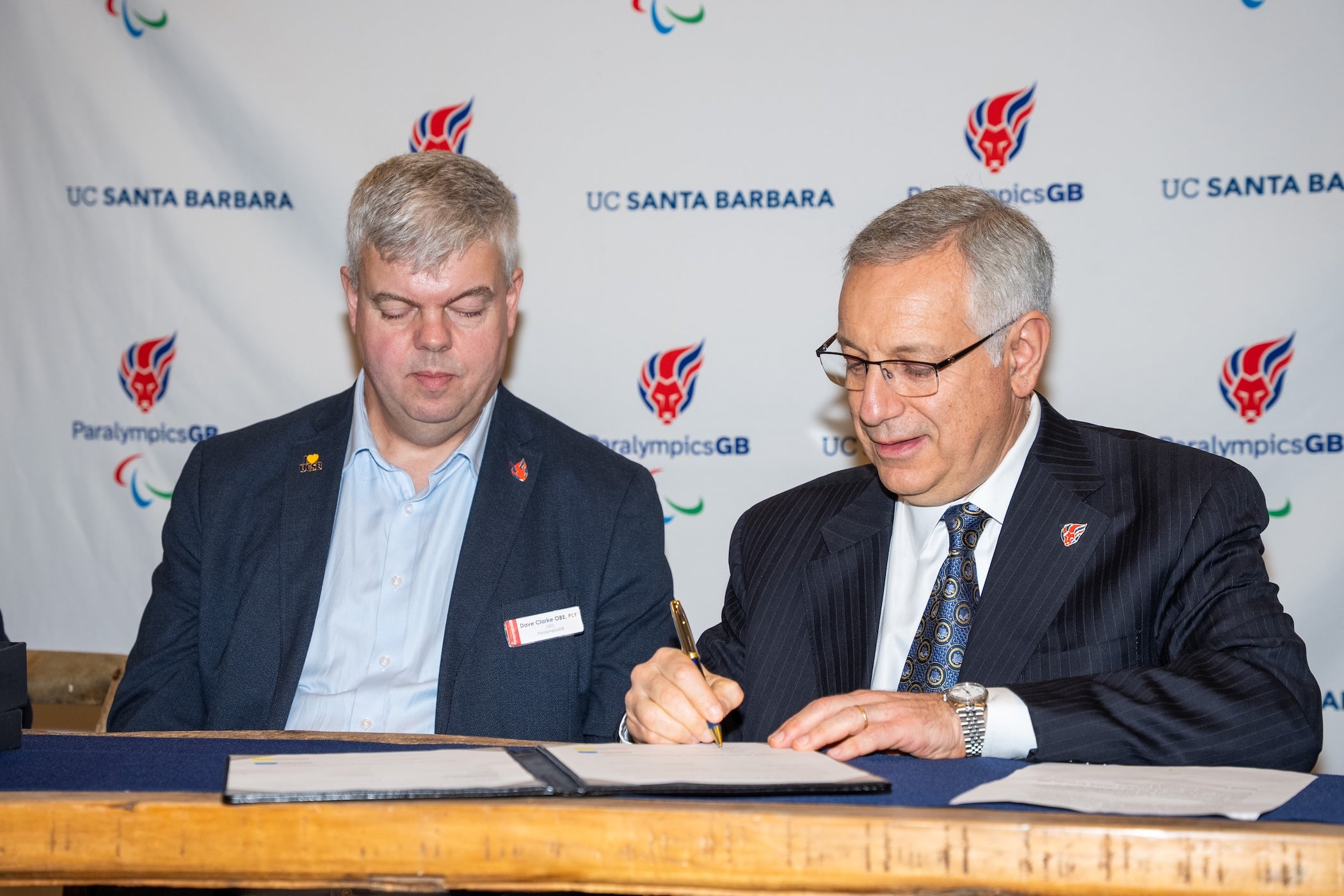
What do old goggles, swimcaps, swimsuits, swimfins, snorkels, water polo and tennis balls and exercise stretch bands have in common? Beyond the obvious, they are all items that quickly filled the inaugural sports-waste recycling bin located at the Recreation Center at UC Santa Barbara.
That first collection bin, set up in April as part of the student-led “Dive into Sustainability” initiative, represents a proof of concept for an idea that was surprisingly difficult to execute on a campus known for its pioneering environmentalism.
“Sports-waste recycling is relatively unheard of,” said Aidan Flynn, who graduated this month with an environmental studies degree with an emphasis in business communications. “Sportswear can range from swimcaps to any type of ball, so the recycling process looks different for each type of equipment. I think this is what has made it so difficult for the sporting industry to limit waste – and why this kind of program is new.”
Each time the bin fills, it’s shipped to TerraCycle, a New Jersey-based business that specializes in partnering with municipalities and other big institutions to collect and render difficult-to-recycle post-consumer waste into raw materials.
“I mainly oversaw the project,” added Flynn, who played for the women’s water polo team and served as athletics coordinator and co-chair for the campus Zero Waste Committee (ZWC). “Cami and Ellie planned and executed all of it.”
Flynn’s teammate, Camille “Cami” Mras, who also graduated this month with an environmental studies degree, had heard about a previous recycling drive for swimcaps and goggles that had stalled out when coordinators failed to find a recycler. Mras floated the idea to environmental studies lecturer Kelsey Dowdy, which led to Sage Davis, of the Bren School of Environmental Science & Management, and Rachel Schoeppner with UCSB’s Quantum Structures and Confocal Microscopy & Spectroscopy facilities. Schoeppner was familiar with Terracycle, which handles lab glove recycling on campus.
“My time in the Environmental Studies Program informed my decision to move forward with this project by learning about the life cycle of hard plastics, and the overall process of decomposition,” Mras said. “Learning about this process made me realize that athletics as a whole uses a lot of materials that either take many years to decompose or may never decompose. Microplastics are extremely harmful to the environment and can be transported via air, water and soil.”
The Environmental Studies Program’s “interdisciplinary approach allowed me to take a wide range of classes and learn about many different real-world applications, (and) being a part of the ZWC has allowed me to actually initiate some change,” she added. “For example, I studied a lot about the shortfalls of recycling in America, but starting the sportswear program allowed me to be a part of fixing that larger problem.”
With Flynn and Mras graduating and moving on, the program is now in the hands of environmental studies senior Ellie Schomberg. Her aim is to keep the project going.
“I think a great goal is to make permanent collection sites,” said Schomberg, a distance swimmer on the Gaucho women’s team. “The UCSB community has enough athletic gear to maintain a steady collection. I really believe that this program will continue to help save a ton of plastic waste, and that it will inspire athletes to think more critically about their consumption habits and how they dispose of old gear.”



